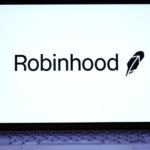In the legal field obsessed with precedents, AI is sparking a new one. Lawyers are incorporating legal AI “copilots” and related tools into their workflows, driven by a booming landscape of AI legal startups.
“Lawyers are not big R&D people. They’re not hackers and experimenters. They are ‘tell me what this thing can do. Tell me it is safe to use it, and I’ll use it.’ We’re not yet at a collective sense of that in the legal profession to have hit the threshold of widespread [AI] adoption, but I think it is slowly approaching,” said Jordan Furlong, a lawyer and legal sector analyst. “I think we’re probably going to hit it maybe within the next couple of years. It’s hard to say—it could be a lot sooner.”
The impact of AI in the legal sector goes far beyond the tools lawyers use to complete tasks, however, and could dramatically shift legal processes in fundamental ways. Legal professionals now have to deal with the fallout of AI-generated and manipulated evidence and the larger societal erosion of trust in what we see and hear. There is a risk of biased AI systems being used as decision makers in the legal systems. There’s also the question of: if everyone gains access to tools to help them navigate legal documents and concerns, will people even need lawyers in the same ways they do today?
International law firm Troutman Pepper Locke is using several commercially available AI tools, such as the full suite of Thomson Reuters AI products, and was even an early investor in CoCounsel, Thomas Reuters’ generative AI assistant for legal professionals. In 2023, the firm also rolled out an internal AI system it built on OpenAI’s GPT-4. Called Athena, it acts as a chatbot-style assistant and is used for tasks from refining draft correspondences for clients to answering questions about the firm’s internal processes. According to Troutman Pepper Locke chief innovation officer William Gaus, the firm’s staff prompt Athena about 3,000 times every day.
The same type of tool that Troutman Pepper Locke built internally is exactly what so many legal AI startups are commercializing too. Legal AI company Filevine, for example, offers a suite of AI features tailored to specific legal tasks, such as a deposition tool to help lawyers analyze testimony in real-time, a tool to automate the case validation process, and a tool to boost research efficiency by summarizing key details from legal documents. Cofounder and CEO Ryan Anderson said the suite of tools is designed to take lawyers through the entire legal journey, but the most popular product is still the more traditional copilot—similar to Athena—built to assist with any questions and tasks, which the company calls Chat With Your Case.
“I would say it will be a pretty dramatic change in how lawyers work. There’s just no way lawyers won’t be working with copilots in the next two years,” Anderson said. “It’s just a routine part of their daily work life.”
For Trouman Pepper Locke, the firm also found use of its AI tools outside of daily functions, such as using it heavily in the firm’s recent merger. Gaus and the merger team itself used Athena as a thought partner, keeping running dialogues for different work streams of the merger such as finance, technology, and marketing.
They also created an agentic capability to redraft the bios of the incoming 1,600 attorneys, which needed to be updated to account for the new firm’s information and adhere to its existing style. Gaus said this made the process seamless compared to the six months it took to manually update attorney bios with the last merger, saving $200,000 in time spent. Overall, Gaus said they’re currently finding AI to be most useful for backend admin tasks, which he believes are a great place to start because they’re low risk.
Lastly, the team built a functionality within Athena to make it easy for staff and attorneys from the incoming firm, Locke, to quickly get answers to any questions they’d have, from billing processes to IT.
“We wanted to make sure to get these people answers as quickly as possible. So if we could build a system, like a generative AI system in this case, that could reliably get them answers to their questions around billing and collections, for example, we would obviously go for something like that over the old school methods,” said Gaus.
Furlong believes it’s safe to say that many tasks lawyers have performed in the past will soon be carried out—in whole or in part—by machines. AI, he said, will “give lawyers both the opportunity and the mandate to shift gears” in terms of how they view themselves and the kind of services they provide, adding that their work days will look very different in the coming years.
“I find it incredibly exciting. Terrifying for sure. Risky, no question. But really exciting,” said Furlong of AI’s overall impact on the industry. “There is so much that we could do if we get this right.”









